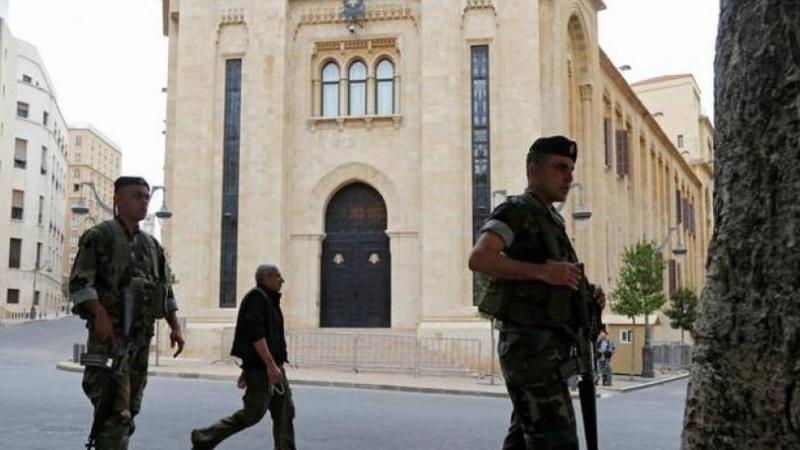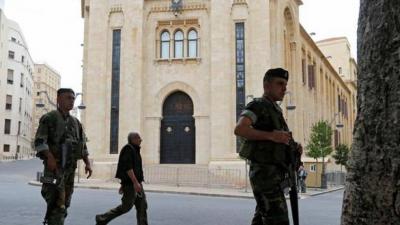After the "Dahis and Al-Ghabra" battle of the parliamentary committee elections and the distribution of positions, especially the presidents and secretaries of the committees among various components, parties, and factions of the parliamentary council—except for the representatives of the "Change" forces who only have membership in some committees—the new committee process has begun by setting dates to establish the methodology and strategy each committee will operate under, as well as their priorities and the key projects and proposed laws on their agenda.
The first meeting took place yesterday with the Finance and Budget Committee, which decided to invite the government and its representatives to an extraordinary meeting next week to discuss the 2022 budget and the legislation related to the recovery plan. According to the information, the session discussed the 2022 budget project and its discussions prior to the parliamentary elections, and whether it remains valid today in light of its figures, along with the Finance Committee's observations, and the financial and monetary standards the government relied on in the budget project to achieve revenues as well as the other rates concerning deficits and growth. The committee also discussed the financial legislations related to the recovery plan, including lifting banking secrecy, restructuring banks, and other items that the government should have a clear vision about.
Furthermore, the committee discussed its working mechanism, meetings, and priorities for the upcoming phase from a supervisory perspective and in fighting corruption, as well as the issues that concern citizens in terms of social, health, educational, monetary, and banking matters that people are suffering from the repercussions and implications of, and what the Finance Committee can do to contribute to addressing them within its powers and alleviating their burdens. The committee chair presented the committee's achievements in legislative and supervisory aspects, particularly in public finance, financial accounts, random hiring, and budget cuts, as well as the recommendations and decisions issued regarding previous budgets referred to it.
The committee adopted two meetings per week and its chair will set the agenda according to the proposed financial and living priorities. Meanwhile, today, the committees of Administration and Justice, Agriculture, Tourism, Youth, and Sports will convene at different times to establish the methodology and work plan, noting that the heads of these three committees have not changed between the 2018 and 2022 councils, although their memberships have seen some changes, and the positions of the secretaries. Therefore, the spirit and methodology will become clearer in the coming hours.
In this context, it is essential to remind that the most controversial topic, which was the demand of many forces and representatives, is "the independence of the judiciary," which the Administration and Justice Committee had previously studied and referred to the General Assembly of the Parliament. However, the Minister of Justice in the caretaker government, Henry Khoury, requested to withdraw it on the grounds that the Higher Judicial Council had not seen the final version. This crucial and significant proposal remains stalled under various pretexts, while the reality is the lack of consensus or understanding among the components of the previous parliamentary council on the mechanism for appointing or electing members of the Higher Judicial Council.
Meanwhile, attention is turning towards the new representatives who have entered Parliament for the first time and have taken leadership of important parliamentary committees, among them MP Hasan Murad, who heads the Committee on Education, Culture, and Higher Education, who promised to work on launching a comprehensive educational reform plan, by amending or working on approving the necessary laws for this purpose.
Murad, who set the date for the first meeting of the committee for next Monday morning, stated in a special interview with "Nidaa Al-Watan": "The goal we will work towards is to approve everything that can restore respect to the public school to be able to compete with its private sector counterpart, open the role of teachers and the Faculty of Education to prepare teachers, and end the educational contracting phenomenon, along with enhancing official vocational education to match market needs."
Murad emphasized "the necessity of enhancing the role of the national university and approving the necessary legislations to develop it and open the annual tenure door and approve its financial and moral independence, making it a launching point for joint research among universities and chambers of industry, commerce, and agriculture, as well as working to restructure the Ministry of Education and Higher Education to be more responsive to rapid scientific developments, in addition to focusing on developing educational curricula and completing a unified history book and amending the national upbringing book to enhance national belonging and citizenship state, and injustice to teachers in public, private, and vocational schools, whether they are in the administrative status or contractors and others."
We await the days and hours ahead to see if the methodology of the 2022 council and representatives will differ from that of the 2018 council and representatives.




